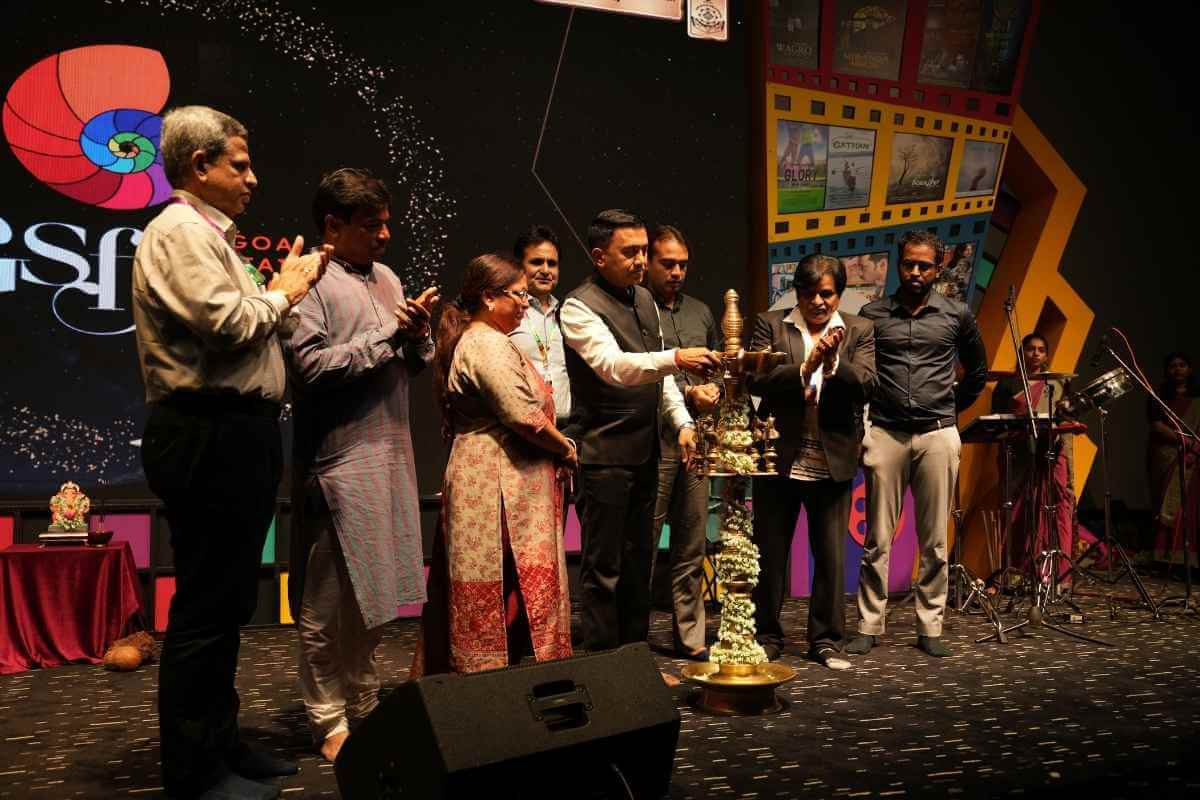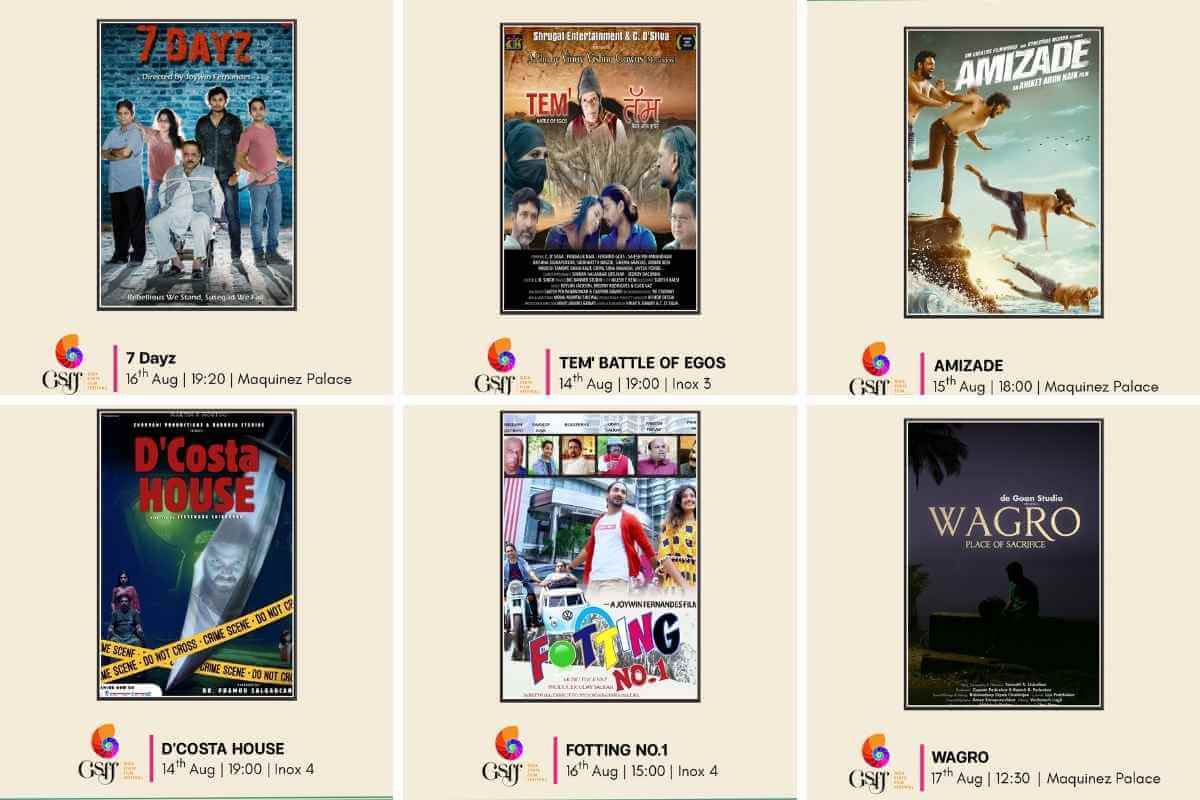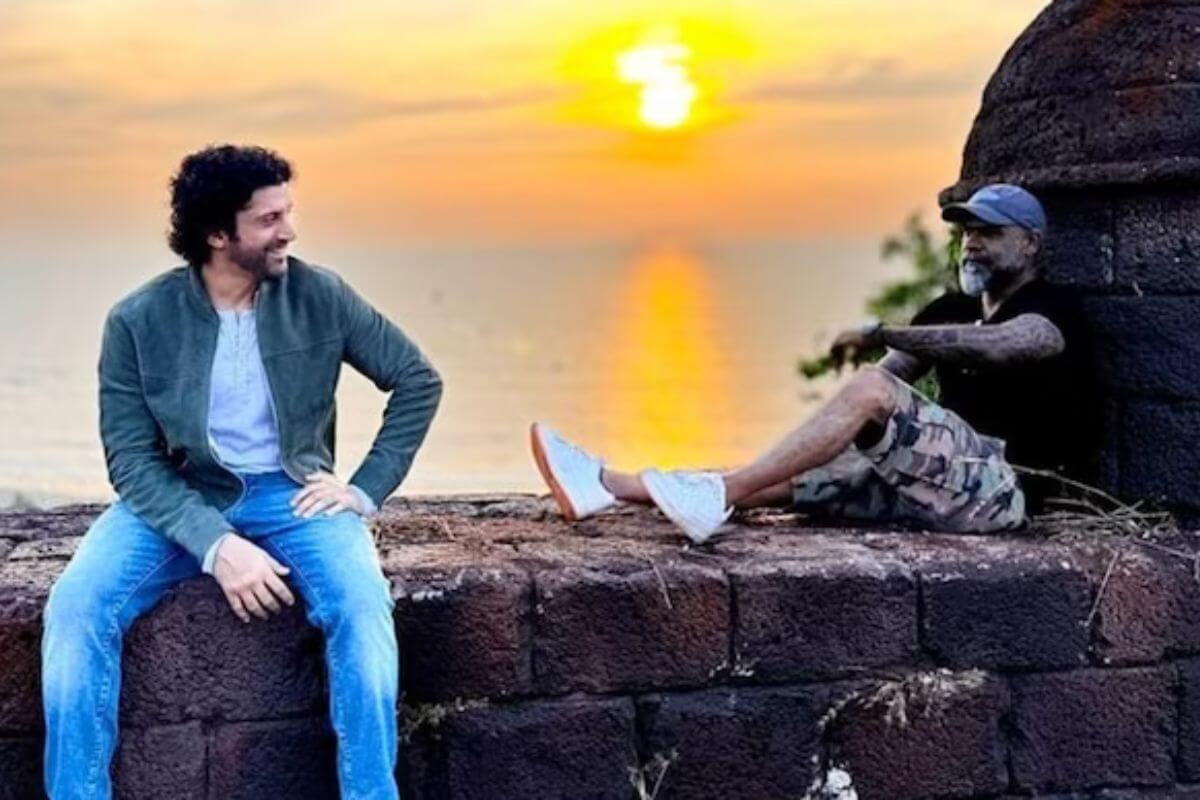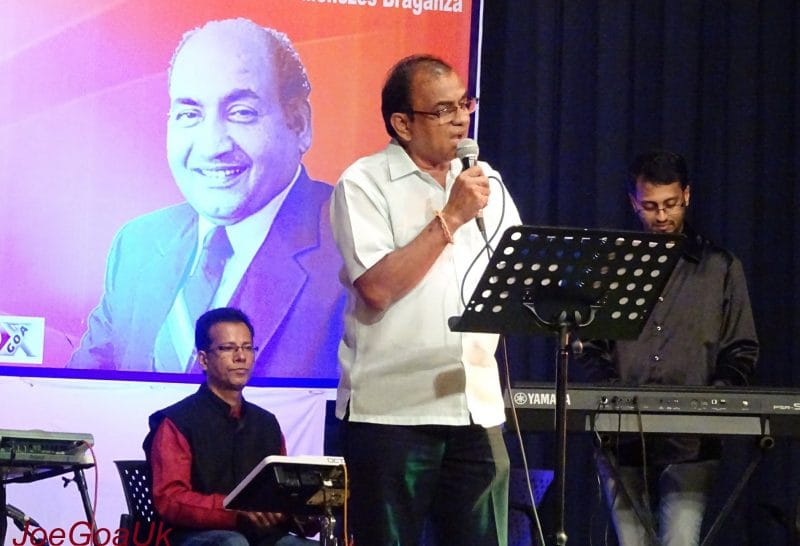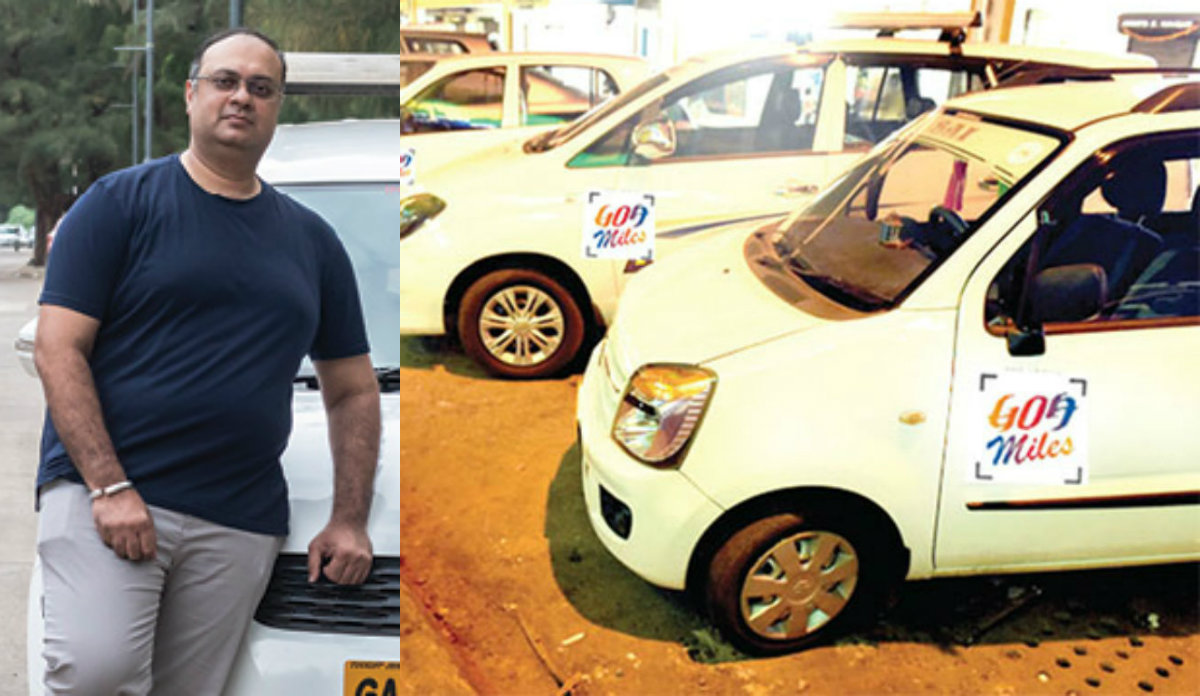Sigmund de Souza is a quiver full of arrows. He is adept at so many things you tend to wonder how many talents could be crammed into just one person! Having always pursued his interests, he is now at a crossroads of which particular one to immerse himself in completely. Join us as we sift through his many arrows.
For most of his life, Sigmund worked as a journalist by day and musician by nights. He would perform for three shows in a week, being occupied otherwise with his work at his first job at the Gomantak Times. That was way back in June 1988. Fortunately, he saw a steady rise in both his professions. As he moved from being a sub-editor to a sports section writer to a general reporter at the Gomantak Times in a matter of few months, he graduated to sing at the popular music haunt – Haystack As per Sigmund’s memories.
“It was the same place where Remo started the trend of singing with an acoustic guitar. Haystack was a place where the whos-who of India would come once a week on Fridays. Its entry fee was Rs 250 back then, including dinner. Till today, I haven’t seen anything like a haystack. That place was like a baptism of fire for me. I had just come out of school, I was 21, and had to play between Remo and Lucio Miranda. I even started drinking and smoking just to kill my nervousness! It was really difficult but amazing.”
After that, his journalistic career took off on a longer projectile. In 1992 he joined The Herald as chief reporter, while also writing as a correspondent for Midday (Bombay). In 4 months, however, he had a tiff with the editor of Herald. That tiff was enough for him to leave the job. Sigmund told us, “I was never desperate for a job. I believe if you are good at something, you will always find a job. So I typed out my resignation letter, threw it on his table and walked out!”
Starting things on your own
After quitting he decided to open up his own office. In November of 1992, he started his own media consultancy. Midday newspaper’s operations launched in Goa from Sigmund’s office. Every evening newspaper copies would come from Bombay. Consequently, Sigmund became the pioneer in the FM movement in Goa. Radio Midday launched as the first private FM station in Goa in November 1994. He took up an office in the Unitec City Centre. He ended up working as Beaureu Chief Midday as well as Acting Station Head at Radio Midday. But all was not roses and daisies.
“Goa has this stereotypical party place tag. They have a funny idea – they feel everybody is on holiday here. So the people in Mumbai would keep dumping work on me saying you couldn’t possibly complain since you are in Goa! I would say we are real people with real lives, we also have families to go home to. Whenever I wrote about Goa, some junior sub-editor would twist it, make it a fun thing and put it. Then I would face the brickbats here when the report turned up saying – how could you mock us! So I thought it was time to quit and start something of my own where I could tell the world about the real side of Goa,” He narrated.
“In 1997 I decided I needed a break from working for other people,” he said with finality. Around the same time, he fell terribly ill too – he had 2 bouts of cerebral malaria. But it didn’t stop him. “That was when I recorded my first album! It was called Encore; I sang with the Valadares sisters, my wife’s group. It was because I always believed that you fall sick only when your mind is tired. Journalism was for my mind, while music is what my heart yearned for. I decided to give my mind some rest, and tended to my heart by starting in music.”
The Goa Messenger
Sigmund’s writer’s mind wouldn’t let him be. So alongside his music, he again decided to give vent to his voice. He started his own publication called ‘The Goa Messenger’, to talk about the real issues of Goa. It started as a monthly, became a fortnightly, then he ran it as a weekly for over a year. But the problem was Goa Messenger didn’t feature politics. He said “I wrote about the real issues faced by the Goan people. Unfortunately in Goa, it’s difficult to find advertising. I had to depend on the government.
Sigmund started this publication with great dreams. Being able to run a weekly magazine in Goa, is a matter of commendation. Goa’s low density of the reading population makes the circulation of a serious content-oriented magazine difficult. Yet Sigmund sustained. Two years back, however, he felt the need to stop and rethink the path the magazine would take. Sigmund told us, “Now I am able to produce one issue every 2-3 months. The reason for this drop in production is because people do not buy print media as much anymore. Sales have completely plummeted. For all the effort and the expenses, there was no reward.”
When faced with adversity, we have to find a solution to survive. Sigmund wasn’t out of ideas, “I am thinking of going online with the magazine. I might also decide to sell it to someone else, a like-minded individual who will connect with the policy this magazine was started with. The policy was to encourage young Goan talent to stay in Goa and rise here. We want homegrown heroes.” And what makes him sure of its possibility? Remo Fernandes! He continued, “One of the biggest role models that time was Remo Fernandes. He showed people that they could live in Goa and still earn big money! Although one does have to fly the nest and go out of Goa to earn experience, better skills and contacts, people have risen higher after returning to Goa and enhanced the cultural scene here.”
Life at a crossroads
All this while Sigmund deftly managed to balance both his jobs of mind and heart – journalism and music – equally efficiently. Last year, he finally began construction of his own house in Porvorim. That was when he realised that his balancing act would not last any longer. “I am at a crossroads right now,” he says, adding “When you have a multifaceted personality, it becomes difficult to decide what to take up! That’s my problem. My skills and experience range from journalism, music, painting to social activism. I also was also active in sport and drama in my younger days. So I have taken a breather now.” He is aware of his tendency to put off work, yet he doesn’t want to push it as he believes in giving the best output or nothing at all. “We creative people tend to procrastinate a lot. We work with our emotions. We have to be in the mood we work. For business, it isn’t beneficial. If I don’t follow my heart, I get stressed out and am not able to give my best output” Said, Sigmund. This breather then looks like a time for him to follow his heart!
The changing demographics, social scene, people’s behaviours and habits all play a role in deciding the future of media. Thus the future of Sigmund’s Goa Messenger magazine is unsure. He said, “I knew the television and print media would eventually merge. The TV has already become a smart TV now. We have to get smart in publication business now!”
Sigmund is a singer-songwriter. He writes and composes his own music. Taking after his role models, he wants to grow more in Goa. He has bigger dreams in the music field. “I would love to write a musical score for a film. In 4-5 years, I want to work with film production, go on a long journey with music basically.” He said.
The hardest thing for a musician is when he or she isn’t understood. Through every medium of art, the artist isn’t only trying to express a generally known emotion; the artist is also revealing a portion of their soul. Sigmund prays the people of Goa to see this nascent beauty of musicians and encourage more live performances by musicians rather than just putting playback music or belting out movie tracks. Thinking of the greatest barrier of that he said, “I’d like to point out, music looks like a fun thing. But nobody sees the blood and sweat involved in making that music. The trick of being a good performer is preparation. You have got to take care of every detail and rehearse many times before the show to finally have a good performance. It will show on stage. Unfortunately, Goan musicians don’t like to rehearse. They want to come on the final day and perform. Bands like Queen, Rolling Stones, Beatles – they were good because they practised very hard. Even Remo worked very hard on his music. He and his band would rehearse for weeks together. That is how their output came out so well.”
One thing is for sure. Whichever route Sigmund decides to take from the crossroads in his life, music is going to be a significant part of it. Hopefully, his dream of people recognising musicians comes true, and Goa gets to witness a richer musical culture!
Sigmund has a flair for good writing. But music thudded in his veins so loud, that he left writing in 1997. Instead of forming a band, he chose to sing solo, because back then one couldn’t depend on music for income. In 2010 he finally formed a three-piece band and performed at shows all over Goa for 5-6 years. Presently their shows are on a halt because their drummer has left due to a back injury. Sigmund looks up to Remo. But his greatest inspiration was Alexandre Rosario, the bass guitarist in Remo’s first band called Beat 4. “It was Christmas of 1997. I had gone for a dance in Mapusa, on the St Xaviers college hill. After a break, a guy came up to sing accompanied by just a guitar. He sang ‘Something’ by the Beatles. People got attracted to the floor like moths to a flame! I picked up a friend’s sister and went on the dance floor. I saw this guy with long side-locks and a moustache, looking like a George Harrison clone, and he sang so beautifully! That was when I knew, this is what I want to do!”
Some particular instances or dialogues leave a lasting impression on us. Such was Alexandre’s music on Sigmund. He knew after that night that music would be his innermost calling. That is why he wishes more Goans discover the beauty of music. He wants to share his experiences and joys with his people. He said, “I hope Goans start encouraging musicians. Not just people who sing with playback music, they are entertainers. I want more musicians to come up – the ones who write their music, perform live and create different moods. Such music is needed in this state of ours!”











